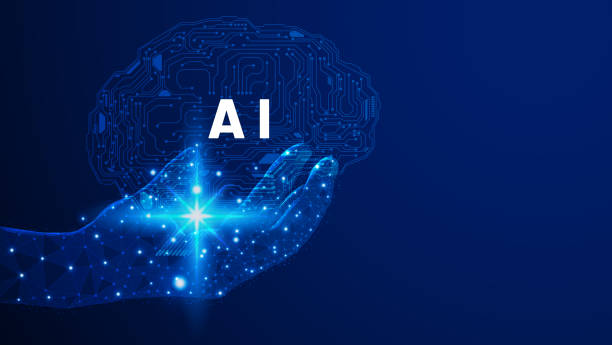Artificial Intelligence and the Dawn of a Job Revolution
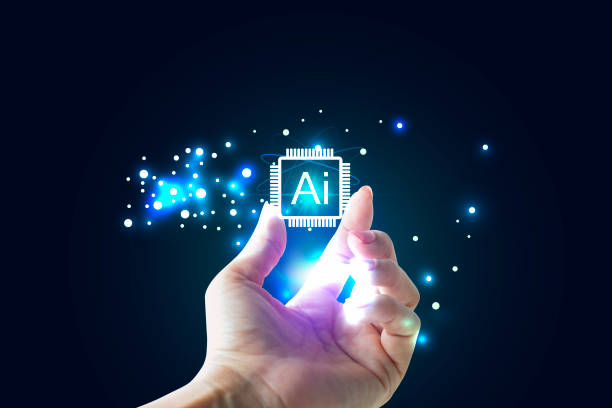
In the current era, Artificial Intelligence (AI) is not merely an advanced technology, but a massive driving force for #job_transformation across the globe.
With the increasing growth of capabilities in machine learning, natural language processing, and computer vision, machines have become capable of performing tasks previously only executable by humans.
This transformation raises important questions about the #future_of_work and the #labor_market, and many discuss its implications for the #future_of_artificial_intelligence_jobs.
Some are concerned about widespread job losses, while others emphasize the emergence of new job opportunities and increased productivity.
The nature of this revolution is not limited to the automation of repetitive tasks; it also leads to changes in the nature of jobs and the need for new skills.
These changes create unparalleled opportunities for advancement and innovation, while also posing challenges in workforce training and adaptation.
A precise understanding of these changes is vital for every individual, organization, and government seeking to survive and thrive in this #new_era.
Does your current e-commerce website design lead to loss of customers and sales?
Rasaweb is your solution with modern and user-friendly e-commerce website designs!
✅ Significant increase in conversion rates and sales
✅ Creation of strong branding and building customer trust
⚡ Get a free e-commerce website design consultation from Rasaweb!
Jobs on the Brink of Change and Smart Automation

With the remarkable advancements in artificial intelligence, many jobs involving repetitive, predictable, and data-driven tasks have become susceptible to automation.
This transformation is not limited to factories and production lines; it has also permeated service and administrative sectors.
For example, roles such as accounting, data entry, simple financial analysis, and even some customer support tasks are gradually being performed by algorithms and robots.
This is a deep analysis of the current trend.
AI can process vast amounts of data at unprecedented speed and with great accuracy, detecting patterns, which has revolutionized tasks like disease diagnosis in medical images or fraud detection in financial transactions.
This trend does not mean the complete elimination of jobs, but rather a change in their nature and a need for complementary skills to work alongside AI.
Jobs requiring creativity, critical thinking, emotional intelligence, and complex human interaction are less at risk of automation, but even in these areas, AI tools can act as powerful assistants.
The future of AI jobs is not just about job elimination, but about the adaptation and evolution of human roles.
Emergence of New AI Jobs and Emerging Opportunities
![]()
Alongside jobs that may be affected by automation, artificial intelligence itself paves the way for the emergence of a wide range of new and exciting professions.
These jobs offer unparalleled opportunities for professionals with new specialized skills.
For instance, roles like Data Engineers, responsible for collecting and organizing data, or Data Scientists, tasked with analyzing data and building predictive models, are rapidly growing.
Furthermore, Machine Learning Engineers who design and implement AI models, and AI Ethicists who ensure the responsible development and use of this technology, will be among the key roles of the future.
Even newer jobs such as “Prompt Engineers,” whose responsibility is to optimally interact with large language models to produce accurate and useful outputs, are emerging.
Understanding these opportunities and preparing to enter these fields is crucial for those looking to secure their AI career future.
These changes not only signify a shift in the type of work but also the creation of entirely new job ecosystems that require a different approach to education and skill development.
The following table introduces some of these new jobs and their roles:
| New Job Title | Main Role and Responsibility | Required Skills |
|---|---|---|
| Data Scientist | Analyzing large data to extract insights, building predictive models | Programming (Python/R), Statistics, Machine Learning, SQL |
| Machine Learning Engineer | Designing, developing, and deploying AI systems | Programming, ML frameworks (TensorFlow/PyTorch), Software Engineering |
| AI Ethicist | Ensuring responsible and ethical development of AI systems | Philosophy, Law, Sociology, Understanding of AI technology |
| AI Architect | Designing the overall structure and framework of AI systems | System Design, Cloud Computing, Deep understanding of AI technologies |
| Human-AI Interaction Designer | Designing user interfaces and user experiences for AI systems | UI/UX Design, Psychology, Understanding of AI capabilities |
Essential Skills for Success in the Age of Artificial Intelligence
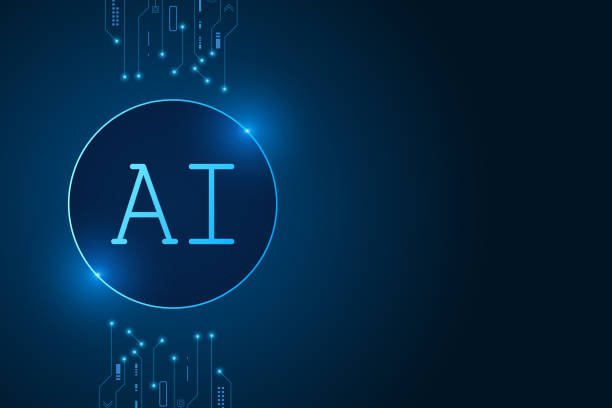
Given the rapid developments in the job market, merely possessing technical knowledge in artificial intelligence is not enough.
To secure one’s AI career future and remain competitive in this market, individuals must develop a set of hard and soft skills.
In terms of hard skills, Data Literacy has gained increasing importance; the ability to collect, analyze, and interpret data is essential, even for jobs not directly involved with AI.
Familiarity with the basic principles of machine learning, understanding how algorithms work, and the ability to use AI tools (such as ChatGPT or data analysis tools) are also among the required technical skills.
However, perhaps more important than hard skills are soft skills.
Creativity, critical thinking, complex problem-solving, and the ability to continuously learn and adapt to changes are vital skills.
Furthermore, emotional intelligence and strong communication skills are important for effective collaboration with colleagues and understanding customer needs, especially in hybrid work environments where humans and machines work side-by-side.
Teamwork and interdisciplinary collaboration are also essential skills, as AI projects often require cooperation among experts from various fields.
Investing in the development of these skills not only prepares individuals for future challenges but also helps them identify and leverage new opportunities in the world of AI work.
Does your current e-commerce website design not generate the expected sales for you?
Rasaweb is an expert in professional e-commerce website design!
✅ An attractive and user-friendly website aimed at increasing sales
✅ High speed and security for an ideal shopping experience⚡ Get a free online store design consultation with Rasaweb!
Education and Training in Facing AI Transformations
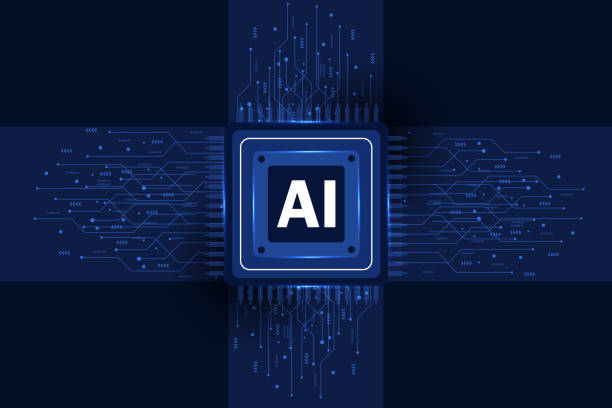
Educational systems worldwide face a major challenge: how can they cultivate a generation prepared for the AI career future? The answer lies in a fundamental rethinking of educational approaches.
Rote memorization is no longer sufficient; education must focus on developing critical thinking, problem-solving, creativity, and digital literacy skills.
Schools and universities must update their curricula to include topics such as AI principles, data ethics, programming, and data analysis.
Furthermore, the concept of “lifelong learning” has gained immense importance.
Individuals must be prepared to learn new skills throughout their professional lives and adapt to changing technologies.
Governments and organizations can help the workforce stay current by offering reskilling and upskilling courses.
For example, vocational and technical training programs can prepare graduates for the job market by focusing on the skills required to work with AI tools and robotics.
This is a highly critical educational content, essential not only for students but also for the existing workforce, to remain competitive globally and benefit from the opportunities AI creates.
Moreover, the development of interactive and project-based learning environments can help students acquire the practical skills needed to face real-world challenges.
The Role of Governments and Industries in Shaping the Future of Work
![]()
Shaping the AI career future is not solely the responsibility of individuals; it requires a comprehensive and coordinated approach from governments, industries, and the private sector.
Governments can accelerate AI development by formulating supportive policies and investing in necessary infrastructure, including high-speed communication networks and data centers.
Additionally, offering financial incentives to companies that invest in training and upskilling their employees can help reduce the skill gap.
Establishing a strong and flexible social safety net, such as comprehensive unemployment insurance or basic income programs, can mitigate the risks associated with job displacement and allow individuals to transition to new jobs without worry.
On the other hand, industries and companies play a pivotal role in identifying future skill needs and providing feedback to educational institutions.
They must invest in research and development and foster a culture of innovation within their organizations.
Public-private partnerships can help establish specialized AI training centers and startup accelerators.
A news and analytical approach to this topic indicates that countries leading in this area will gain a significant competitive advantage in the global economy.
Therefore, constructive cooperation among all stakeholders is vital to creating a dynamic ecosystem that both leverages AI opportunities and manages its challenges.
This is a difficult but necessary path to ensure a successful transition to the AI era.
Human-AI Collaboration: A Solution for Greater Productivity
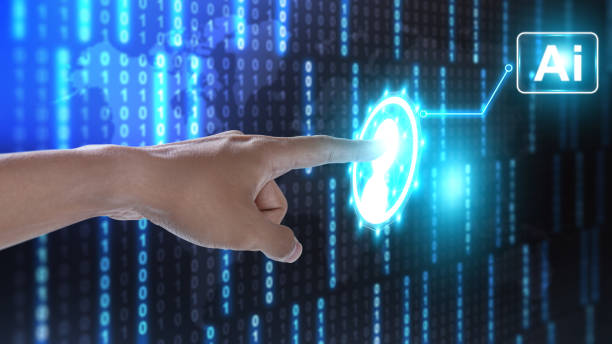
One of the most important aspects of the AI career future is the concept of “Augmentation” instead of “Automation.”
Instead of viewing AI as a competitor to human labor, we should consider it a powerful collaborator.
In many scenarios, the best results are achieved when humans and AI work together, leveraging each other’s strengths.
Humans possess skills such as creativity, abstract thinking, emotional intelligence, and ethical judgment, while AI excels at tasks like processing vast amounts of data, identifying patterns, and performing complex calculations.
This collaboration can lead to unprecedented increases in productivity, innovation, and service quality.
For example, in healthcare, AI can help doctors diagnose diseases faster, while the doctor makes the final decision based on their experience and human interaction.
This approach raises questionable content regarding the limits of responsibility and ethics in human-machine hybrid systems.
How do we ensure that this collaboration benefits society and does not lead to new inequalities? These challenges require deep thought and the formulation of ethical rules and standards.
The following table compares the benefits of human-AI collaboration:
| Aspect | Human Role | AI Role | Result of Collaboration |
|---|---|---|---|
| Creativity and Innovation | Ideation, designing new concepts, thinking outside the box | Rapid idea processing, generating variants, optimization | Faster and deeper innovation with data-driven support |
| Complex Problem Solving | Defining the problem, understanding ambiguous dimensions, final decision-making | Data analysis, pattern identification, offering optimal solutions | More accurate and efficient solutions for complex problems |
| Decision Making | Applying ethical judgment, understanding human context, ultimate accountability | Providing comprehensive information, predicting potential outcomes | More informed, faster decisions with fewer errors |
| Repetitive and Tedious Tasks | Monitoring, strategic planning, feedback and process improvement | Automating repetitive tasks, rapid data processing | Increased productivity and human focus on more valuable tasks |
| Customer Interaction | Empathy, understanding emotional needs, conflict resolution | Quick responses to frequently asked questions, customer behavior analysis | Personalized and efficient customer service |
Global Outlook on the Future of AI Careers

The impact of artificial intelligence on the job market is a global phenomenon, but its intensity and nature will vary across different countries, depending on their level of economic development, industrial structure, and government policies.
In developed countries, where service and knowledge-based industries are dominant, the focus will be more on the changing nature of jobs and the need for new skills.
In contrast, in developing countries where manufacturing and agriculture sectors have a larger share in the economy, automation may lead to more widespread job displacement.
News reports and international analyses indicate that countries leading in investing in AI education and developing digital infrastructure will have a higher competitive advantage in the global economy.
This is an analytical content showing how various countries compete to seize a share of the AI career future.
Immigration policies may also be affected, with increasing global demand for AI specialists.
This could lead to a “talent war,” where countries compete to attract and retain the best AI professionals.
Additionally, international cooperation in the ethical development of AI and the formulation of global labor standards can help reduce digital divides and ensure a fair distribution of opportunities.
This global perspective helps us better understand the potential implications and prepare for future challenges and opportunities.
Are you losing business opportunities due to an outdated website? With Rasaweb, solve the problem of not attracting potential customers through your website forever!
✅ Attract more high-quality leads
✅ Increase brand credibility in the eyes of customers⚡ Get a free corporate website design consultation!
Adaptability and Continuous Learning: Key to Job Longevity
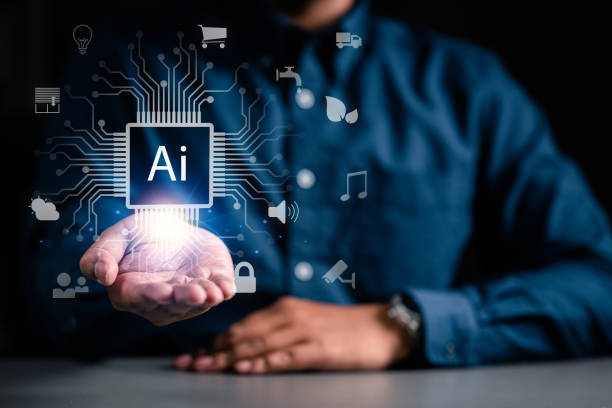
In a world where artificial intelligence is rapidly advancing, the only skill that never becomes obsolete is the ability to learn and adapt.
To ensure the sustainability of your AI career future, every individual must adopt a proactive attitude towards developing their skills.
This means participating in online training courses, reading specialized books and articles, joining professional associations, and networking with other specialists.
The guidance recommendation is that everyone should be their “own career path manager.”
This means continuously monitoring the job market, identifying in-demand skills, and proactively striving to acquire them.
Ask yourself: “Are the skills I have today sufficient for the next five years?” Embracing change and welcoming new technologies, instead of fearing them, is a fun and positive approach that can help you benefit from the wave of AI transformation.
This is not merely advice but a necessity for survival in the future job market.
Jobs that solely rely on repetitive tasks will face challenges over time.
However, jobs requiring creativity, empathy, complex problem-solving and strategic thinking will remain valuable and even be enhanced by AI.
Therefore, investing in yourself is the best job insurance in the age of artificial intelligence.
The Future of AI Careers: A Look at Brighter Horizons
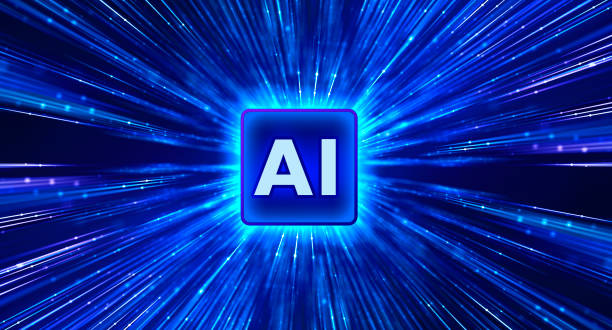
Contrary to some concerns, the future of AI careers is not necessarily a dark outlook of widespread unemployment; instead, it can be an opportunity for positive transformation in the nature of work.
AI can take over repetitive and tedious tasks, allowing humans to focus on more valuable, creative, and meaningful work.
This can lead to increased job satisfaction and an improved work-life balance.
Imagine a job where AI handles all administrative and routine tasks, while you can focus on ideation, solving complex customer issues, or developing new strategies.
This is an illustrative depiction of AI’s potential to improve the quality of working life.
AI can be a tool to augment human capabilities, not replace them.
Achieving this future requires extensive cooperation among governments, companies, and individuals.
We must invest in education and infrastructure, develop supportive policies, and promote a culture of lifelong learning.
With a responsible and forward-looking approach, we can ensure that the transformation driven by AI benefits everyone and leads to a more dynamic, efficient, and humane job market.
The outlook for the AI career future is bright, provided that we embrace it with an open mind and full preparedness, turning it into an opportunity for growth and advancement.
Frequently Asked Questions
| Question | Answer |
|---|---|
| What impact will AI have on the future job market? | AI will automate repetitive jobs, but at the same time, it will create new and more complex jobs in areas such as the development, maintenance, and training of AI systems. |
| Which jobs are most at risk of being replaced by AI? | Jobs involving repetitive, rule-based tasks with low requirements for creativity or emotional intelligence, such as certain manufacturing jobs, data entry, and simple customer service, are most at risk. |
| What skills are essential for success in the future job market with AI? | Skills such as critical thinking, complex problem-solving, creativity, emotional intelligence, data literacy, the ability to work with AI, and lifelong learning are highly important. |
| Will AI lead to widespread unemployment? | Some jobs will disappear, but history has shown that new technologies, instead of causing widespread unemployment, reshape the job market and create new jobs. Adaptation and retraining are crucial. |
| What new job opportunities will emerge with the rise of AI? | Jobs such as Machine Learning Engineer, Data Scientist, AI Ethicist, Human-AI Interaction Designer, and Digital Transformation Consultant are among the new opportunities. |
| What is the role of education in preparing for the AI-driven job future? | Education should focus on developing soft skills, computational thinking, digital literacy, and the ability for continuous learning to prepare individuals for future changes. |
| How can I prepare myself for job market changes caused by AI? | You can prepare yourself by learning new skills related to AI and data, strengthening soft skills, developing critical and creative thinking, and adopting a habit of lifelong learning. |
| Will AI ethics become an important career field? | Yes, given increasing concerns about biases, privacy, and automated decision-making in AI, the role of AI ethics specialists will become crucial for ensuring its responsible development. |
| What is the importance of human-AI collaboration in the future of work? | Human-AI collaboration, rather than competition, will shape the future of the job market. AI can be a tool to increase productivity and allow humans to focus on more complex and creative tasks. |
| Which industries will be most affected by AI? | Almost all industries will be affected, but sectors such as healthcare, finance, transportation, manufacturing, education, and customer service are pioneers in adopting and transforming through AI. |
And other advertising services from Rasaweb Advertising Agency:
Smart Customer Journey Map: A blend of creativity and technology for online growth using real data.
Smart Content Strategy: A combination of creativity and technology for analyzing customer behavior using real data.
Smart Direct Marketing: A fast and efficient solution for customer acquisition focusing on intelligent data analysis.
Smart Website Development: Professional optimization to increase website traffic by customizing user experience.
Smart Customer Journey Map: An effective tool to increase click-through rates with the help of marketing automation.
And over a hundred other services in the field of internet advertising, advertising consultation, and organizational solutions.
Internet Advertising | Advertising Strategy | Advertorials
Sources
The Future of AI Careers in Iran
Digital Transformation and Tomorrow’s Job Market
Artificial Intelligence and New Job Opportunities
Outlook on Future Jobs with AI
? Are you ready to transform your business in the digital world? Rasaweb Afarin Digital Marketing Agency, specializing in SEO, content marketing, social media management, and personal website design, paves the way for your growth. To boost your business, contact our experts today.
📍 Tehran, Mirdamad Street, Next to Central Bank, Southern Kazeroun Alley, Ramin Alley No. 6

